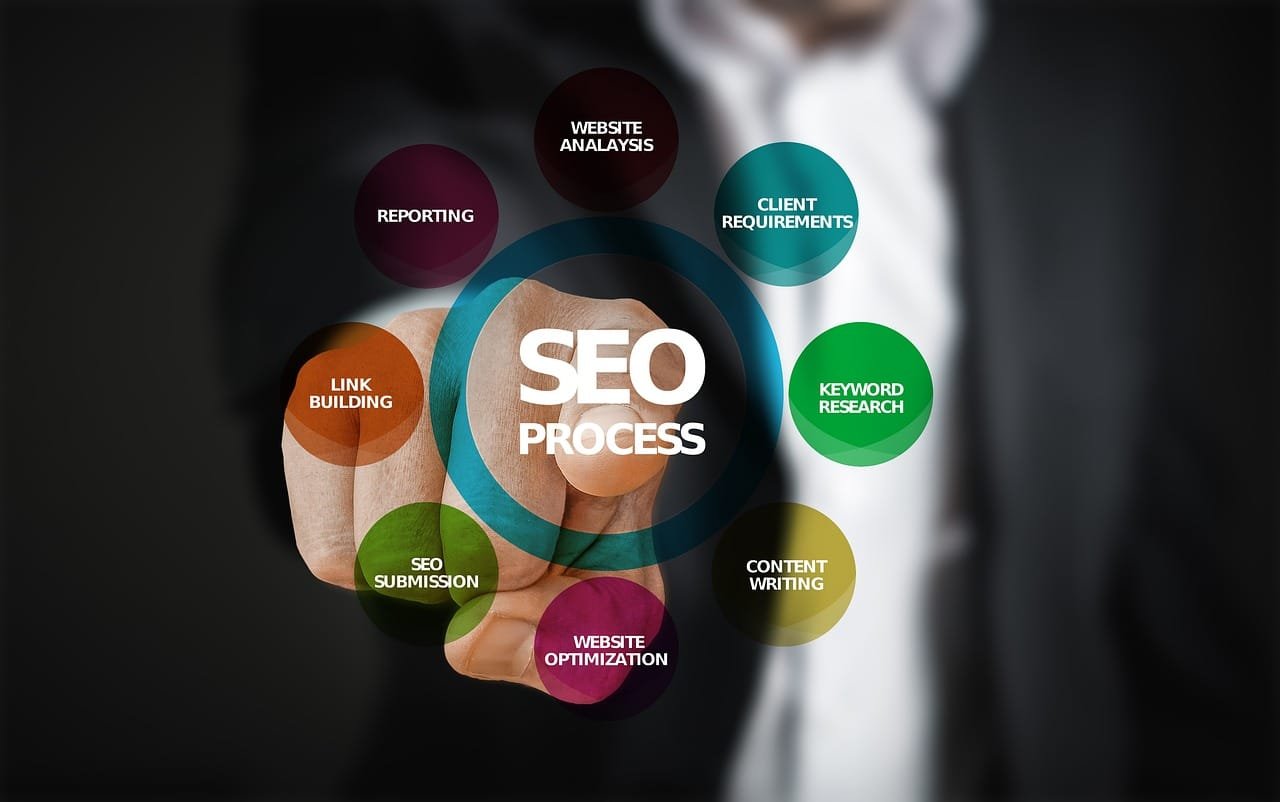This Article has been revised, edited and added to, by Poulomi Chakraborty.
- The Importance of Investing in SEO Tools
- Mapping Out Startup SEO Needs
- Prioritizing Tools Based on Growth Stages
- Breaking Down SEO Tool Costs
- Evaluating Tools for Maximum ROI
- Allocating Budget Across Different SEO Tool Categories
- Content Optimization and Strategy Tools
- Conclusion: Smart Investments for Long-Term SEO Success
In the fast-paced world of startups, every dollar spent must generate a return. SEO, a cornerstone of digital marketing, often necessitates the use of various tools to optimize, analyze, and strategize effectively. But with a plethora of tools available in the market, each with its price tag, how should startups budget for them while ensuring maximum ROI? This comprehensive guide seeks to answer that.
The Importance of Investing in SEO Tools

For startup founders, the digital landscape offers immense opportunities for growth and visibility. In the early stages of business, establishing a robust online presence is critical. Investing in SEO tools is not merely an expenditure but a strategic step towards building a solid foundation in search engine rankings. These tools provide valuable insights that help in optimizing your website content, improving user experience, and ultimately driving more organic traffic.
SEO tools enable you to understand your market and competition better. They help in identifying the right keywords, which are essential for your content strategy and for connecting with your target audience. More than that, they offer analytics that guide you in refining your website structure and content to enhance visibility in search results.
Strategic Integration of SEO Tools into Business Operations
To maximize the return on investment (ROI) from SEO tools, it is crucial to integrate them strategically into your business operations. Begin by setting clear, measurable goals for what you want to achieve through SEO, such as increased traffic, higher rankings for specific keywords, or improved conversion rates. Select tools that align with these goals and provide the functionalities necessary to achieve them.
Consider tools that offer comprehensive features like keyword research, backlink analysis, content optimization, and performance tracking. This integration not only streamlines various tasks but also provides a holistic view of your SEO performance. Leveraging the data generated by these tools, you can make informed decisions that propel your business forward. Regular analysis and adjustments based on this data will ensure that your SEO strategies remain effective and aligned with your business objectives.
Cost-Effective Strategies for Leveraging SEO Tools
For startups, managing budget constraints is often a priority. However, this should not deter you from investing in quality SEO tools. Start by choosing scalable solutions that offer basic services with options to upgrade as your business grows and needs evolve. Many reputable SEO tool providers offer tiered pricing or even free versions with essential features. This approach allows you to benefit from professional SEO guidance without committing to significant initial expenses.
Another cost-effective strategy is to focus on multi-functional tools that cover various aspects of SEO. This not only reduces the need to subscribe to multiple tools but also simplifies data management and analysis, making it easier to draw actionable insights.
Long-Term Benefits of Early SEO Tool Adoption
Incorporating SEO tools early in your business journey can set the stage for sustained success. These tools help in cultivating a data-driven culture within your organization, where decisions are made based on analytics and insights rather than assumptions. The intelligence gathered from SEO tools aids in refining marketing strategies and product offerings to better meet the needs of your target audience.
Moreover, early adoption of SEO tools facilitates a proactive approach to managing your online presence. It allows you to address potential issues before they escalate and to capitalize on opportunities as they arise. By maintaining high visibility and relevance in search results, you ensure that your startup not only survives but thrives in a competitive market.
Mapping Out Startup SEO Needs

Every startup must begin its SEO journey by clearly defining its business objectives. These goals are the cornerstone of effective SEO strategies because they dictate where to allocate resources and what tools are necessary to achieve desired outcomes. For startups, the challenge often lies not in selecting SEO tools, but in choosing those that directly support specific business aims such as increasing product sales, enhancing brand awareness, or reaching new customer segments.
It’s important for startup founders to understand that SEO is not a one-size-fits-all solution. The nature of your industry, the behavior of your target audience, and the competitive landscape all play critical roles in shaping your SEO needs. For instance, a startup in the tech industry may need to focus more on technical SEO and content development to stand out, whereas a local retail business might prioritize local SEO tactics to attract nearby customers.
Assessing SEO Competencies and Resource Allocation
Before diving into the purchase of SEO tools, startups should assess their internal competencies. Identifying whether you have the necessary skills in-house or if you need to outsource can significantly impact your SEO tool choices and budgeting. If you lack SEO expertise, investing in user-friendly tools with extensive support and learning resources can provide a steeper learning curve and reduce dependence on external consultants.
Furthermore, understanding your resource allocation is crucial. This includes budgeting not only for the tools themselves but also for the manpower required to effectively utilize these tools. SEO is not a set-and-forget aspect of your marketing strategy; it requires continuous effort and adjustment based on performance analytics.
Choosing the Right SEO Tools
Once your goals are defined and your capabilities assessed, the next step is choosing the right tools that align with your startup’s specific needs. This involves understanding the features that different SEO tools offer and how these features can help you achieve your business objectives. For example, if your goal is to improve content outreach, tools that provide insights into popular topics within your industry or content performance analytics would be invaluable.
Moreover, it’s beneficial to start with tools that offer scalability. As your business grows, your SEO tools should be able to accommodate increased demands without the need for frequent switching or significant new investments. Scalable tools help ensure that as your startup evolves, your SEO strategies can grow alongside it without losing momentum.
Developing a Roadmap for SEO Success
Creating a structured roadmap for implementing SEO strategies can dramatically enhance the effectiveness of your efforts. This roadmap should outline the phased implementation of SEO tools and tactics based on your startup’s growth stage. Initially, the focus might be on building a solid SEO foundation with keyword research and basic site optimizations. As the startup grows, more sophisticated tactics like link building, advanced content optimization, and international SEO might become relevant.
By systematically planning your SEO journey, you can ensure that each phase of growth is supported by appropriate SEO strategies and tools, thus maximizing ROI and ensuring sustainable growth.
Prioritizing Tools Based on Growth Stages
As startups progress through different stages of growth, their SEO needs evolve. In the early stages, the focus might be on establishing a market presence and gaining initial traction, whereas later stages may require scaling operations and optimizing conversion rates. Recognizing and anticipating these shifts in needs is crucial for making strategic decisions about which SEO tools to prioritize at each stage.
In the initial phase, startups should concentrate on tools that help lay the groundwork for strong SEO. This includes tools for basic keyword research, site analytics, and SEO audits to ensure the website’s foundation is SEO-friendly. These tools are fundamental for startups to understand their initial position in search rankings and to identify straightforward improvements.
Integrating Advanced SEO Tools as the Business Scales
As the startup begins to see growth, the complexity of SEO needs increases. At this point, more advanced tools become necessary. Tools that offer deeper analytical insights, competitive analysis, and content optimization can provide a significant advantage. These tools allow startups to refine their strategies based on detailed data about what works and what doesn’t, enabling them to compete more effectively in their niche.
For startups looking to expand their reach, tools that support local SEO and international SEO become relevant. Local SEO tools are crucial for businesses aiming to capture and dominate local search queries, while international SEO tools help in adapting your website for different regions and languages, which is essential for global expansion.
Streamlining Operations with Automation Tools
During the scaling phase, the volume of SEO tasks can become overwhelming. Automation tools that streamline operations by automating routine tasks such as position tracking, reporting, and even some aspects of content creation can save valuable time and resources. These tools not only improve efficiency but also allow the startup to maintain a consistent SEO effort without expanding their team proportionally.
Furthermore, integrating SEO tools with other digital marketing tools like CRM systems and email marketing software can provide a holistic view of how SEO efforts align with other marketing activities. This integration helps in understanding the customer journey better and optimizing marketing strategies across all channels.
Future-Proofing with Scalable SEO Solutions
Finally, it is essential for startups to choose SEO tools that can grow with the business. Investing in scalable solutions that can handle increased demands as the startup grows ensures that you won’t need to frequently switch tools, which can disrupt your SEO strategy and waste resources.
Choosing tools with robust support and regular updates can also future-proof your SEO efforts. As search engines evolve, so do the tactics and strategies necessary for maintaining visibility. Tools that are frequently updated in response to these changes help ensure that your SEO strategy remains effective and compliant with the latest search engine guidelines.
Breaking Down SEO Tool Costs

When startup founders approach budgeting for SEO tools, understanding the different types of financial commitments involved is essential. This evaluation not only involves upfront costs but also ongoing expenses that may not be immediately apparent. SEO tools can range from free versions with limited capabilities to premium packages that offer extensive features necessary for deeper SEO analysis and automation.
The initial expense of SEO tools can be a significant part of a startup’s marketing budget. Therefore, it’s crucial to consider not only the cost but also the potential return on investment. High-end tools often offer more in-depth analytics and automation features which can save time and provide insights that drive revenue, justifying their higher price point.
Assessing Total Cost of Ownership
The total cost of ownership goes beyond the monthly or annual subscription fees. It includes the time investment required to learn and effectively utilize the tools, any additional costs for training staff, and potentially the expense of integrating these tools with other software. For a startup, where resource allocation needs to be efficient, it’s vital to factor these into the overall budgeting.
Choosing SEO tools with a user-friendly interface and comprehensive customer support can reduce the learning curve and dependency on external consultants for training and troubleshooting, which in turn can decrease the total cost of ownership.
Cost Versus Functionality Trade-Off
Startups must navigate the trade-off between cost and functionality. While it may be tempting to opt for less expensive tools to conserve resources, this can lead to limitations that stifle the effectiveness of your SEO efforts. On the other hand, investing in the most comprehensive tools available without fully utilizing them can drain resources unnecessarily.
To address this, startups should focus on tools that provide the best balance between cost and the specific functionalities needed to meet their SEO goals. This often involves selecting tools that offer modular functionalities or customizable packages where you only pay for the features you need.
Planning for Scalability and Flexibility
As startups grow, their SEO strategies and tools need to scale with them. It’s important to select SEO tools that are not only suitable for current needs but can expand to meet future requirements. This might mean starting with a more basic version of a tool and planning for upgrades as your SEO demands increase.
Furthermore, considering the flexibility of tool contracts is crucial. Some SEO tools offer pay-as-you-go or monthly contracts that are ideal for startups as they allow for adjustments without heavy penalties. This flexibility can be particularly valuable during stages of rapid growth or unexpected downturns.
Strategic Investments in SEO Tools
Investing in the right SEO tools should be seen as a strategic decision that aligns with broader business goals. Startups need to prioritize spending on tools that directly enhance their ability to attract and convert their target audience efficiently. The decision to invest in a particular SEO tool should be based on a clear understanding of how it will help achieve specific outcomes, such as improving search engine rankings, increasing site traffic, or enhancing user engagement.

Related: Check out our free SEO suite

Evaluating Tools for Maximum ROI
To ensure that investments in SEO tools yield maximum return on investment (ROI), startup founders must start by aligning the capabilities of these tools with their specific business goals. This means selecting tools that not only fit the company’s current needs but also support its future growth aspirations. Each tool should be evaluated based on its ability to directly influence key performance indicators such as organic traffic, keyword rankings, conversion rates, and customer engagement levels.
Understanding the strengths and limitations of each tool is crucial. For example, if the primary goal is to enhance content quality and relevance, a tool with strong analytical capabilities for keyword research and content optimization would be preferred. Similarly, for businesses aiming to improve their local search visibility, tools specialized in local SEO analytics and citation building would be more beneficial.
Measuring Performance and Adaptability
It’s important for startups to implement a system for measuring the performance of their SEO tools. This involves not just tracking whether the tool helps improve rankings or drive traffic, but also analyzing the efficiency and usability of the tool. How well does the tool integrate with other marketing platforms? Is it user-friendly enough to be adopted by your team without significant training? Does it offer adaptable features that can be customized as your business evolves?
The ability to measure performance should also include the evaluation of customer support and the frequency of updates provided by the tool. Regular updates are necessary to keep up with the ever-changing algorithms of search engines and emerging SEO trends.
Cost-Benefit Analysis in Tool Selection
Conducting a thorough cost-benefit analysis is essential when evaluating SEO tools. This analysis should consider not only the direct costs associated with purchasing the tool but also the indirect costs like employee training and integration into existing systems. Furthermore, the benefits should be quantified as much as possible in terms of their potential to increase sales, save time, and reduce the costs of other marketing activities.
Startup founders should also look at the scalability of tools, as investing in scalable solutions can prevent future expenditures when business requirements grow. Tools that can expand their functionalities or increase their capacity with your business can significantly enhance long-term ROI.
Trial Periods and Case Studies
Leveraging trial periods offered by many SEO tools can be an effective way to test their potential ROI without committing significant resources. Trials help determine whether a tool fits well with your team’s workflow and meets your expectations in real-world scenarios. During the trial period, specific metrics should be set to evaluate the tool’s effectiveness before making a full investment.
Examining case studies or reviews from other startups that have used the tools can provide additional insights into the potential benefits and pitfalls. Learning from the experiences of others can help predict the tool’s performance and suitability for your own business context.
Allocating Budget Across Different SEO Tool Categories

Startups need to carefully consider their specific business priorities when allocating budget across different categories of SEO tools. The key is to invest in tools that directly support the primary objectives of the business, whether it’s boosting online visibility, increasing organic search traffic, or converting visitors into customers. This means prioritizing spending on tools that are likely to have the most significant impact on these goals, which may vary depending on the startup’s stage in the business lifecycle and its market niche.
Diversifying Tools to Cover All SEO Aspects
It is crucial for startups to ensure that their SEO toolkit is comprehensive, covering all essential aspects of SEO. This includes investing in tools for keyword research to identify what potential customers are searching for, on-page optimization tools to enhance the content on your website, and link-building tools to improve site authority. Additionally, technical SEO tools that can help diagnose and fix site performance issues should not be overlooked as they are crucial for maintaining an optimal user experience.
Balancing Cost and Impact in Tool Selection
While it is important to have a diversified toolset, budget constraints mean that startups must find a balance between cost and impact. High-cost tools that offer extensive features but exceed budget limitations might not be feasible. Instead, startups should look for tools that offer the best return on investment. This could mean selecting a more affordable tool with fewer features that meet immediate needs or opting for a tool with a higher initial cost but substantial long-term benefits.
Investing in Scalability
When allocating budgets, consider the scalability of tools. Investing in scalable SEO tools that can grow with your business is cost-effective in the long run. These tools often offer basic services that are affordable for startups, with options to upgrade as the business grows and its needs become more complex. This approach allows startups to maintain continuity in their SEO efforts without the need to switch to new tools as they expand.
Prioritizing Tools with Analytical Strength
Another critical factor in budget allocation is the analytical strength of the tools. Tools that provide deep insights and analytics help startups make informed decisions about their SEO strategies and measure their effectiveness. These tools can help identify what is working and what isn’t, allowing for more targeted and effective adjustments. Startups should prioritize tools that offer robust analytics capabilities, even if they come at a higher price, as the data provided can significantly enhance decision-making and strategy refinement.
Regular Review and Adjustment of Tool Investments
Finally, it’s important for startups to regularly review and adjust their investments in SEO tools. As the market and technology evolve, so too should the tools that startups rely on. Regular reviews will help ensure that the tools currently in use are still the best options available and provide the necessary features and benefits. Adjusting tool investments according to these reviews can help startups stay agile and responsive to changes, ensuring that their SEO strategy remains effective and aligned with business goals.
Content Optimization and Strategy Tools

In the realm of SEO, content is king. For startups, this means that investing in content optimization and strategy tools is not just beneficial but essential for driving traffic, engaging users, and converting visitors into customers. These tools help ensure that the content not only resonates with the target audience but also aligns with search engine algorithms to boost rankings.
Selecting Tools for Enhanced Content Creation and Management
When selecting content optimization tools, startups should focus on those that enhance the creation and management of content. This includes tools that provide insights into keyword research, content trends, and competitor content strategies. Such tools enable startups to craft content that is both relevant and competitive within their industry. Moreover, content management tools can help organize and schedule content, ensuring consistent publication, which is a key factor in maintaining and improving SEO rankings.
Integrating SEO with User Experience
Content strategy should not only focus on SEO but also on user experience. Tools that analyze user engagement and behavior on the site can provide invaluable feedback on how content is performing in terms of user retention, bounce rates, and conversion. Integrating these insights into content strategy allows startups to refine their content to better meet the needs and preferences of their audience, which in turn improves SEO results by increasing time on site and reducing bounce rates.
Leveraging Analytics for Content Refinement
Tools that offer detailed analytics play a crucial role in the continuous improvement of content strategy. These tools can track how different pieces of content perform in terms of ranking, traffic, engagement, and conversions. By understanding which types of content work best, startups can more effectively allocate their resources and efforts towards content that yields the highest ROI.
Collaborative Features for Team Alignment
Considering tools with collaborative features is also beneficial, especially for startups where team alignment on content strategy is crucial. Tools that facilitate easy sharing, feedback, and iteration processes among team members can enhance the efficiency and cohesiveness of content development. This not only improves the quality of the content but also speeds up the content creation process, which is vital in dynamic market environments.
Cost-Effective Content Tools for Startups
Startups must be judicious in their investment in content tools, balancing cost with functionality. Many robust tools offer free or low-cost plans that are well-suited for startups. These plans often provide enough features to get started with keyword research, SEO analysis, and content management without overwhelming the startup with unnecessary features or costs.
Conclusion: Smart Investments for Long-Term SEO Success
For startups, every budgetary decision counts. When it comes to SEO tools, the focus should be on maximizing ROI, ensuring each dollar spent propels the startup closer to its digital growth goals. By understanding unique needs, staying updated on the latest tools, evaluating performance regularly, and balancing in-house tools with outsourced services, startups can craft an SEO tool budget that delivers consistent and impressive results.
Read Next
- Google Search Console: Leveraging Data for Startup Keyword Insights
- Keyword Research for Startup Landing Pages: Conversion-Centric Strategies
- Keyword Research for Local Startups: Tips for Neighborhood Visibility
- Voice Search Keywords: Optimizing for Voice Search in Startups
- Content Gap Analysis: Finding Keyword Opportunities for Startups




















